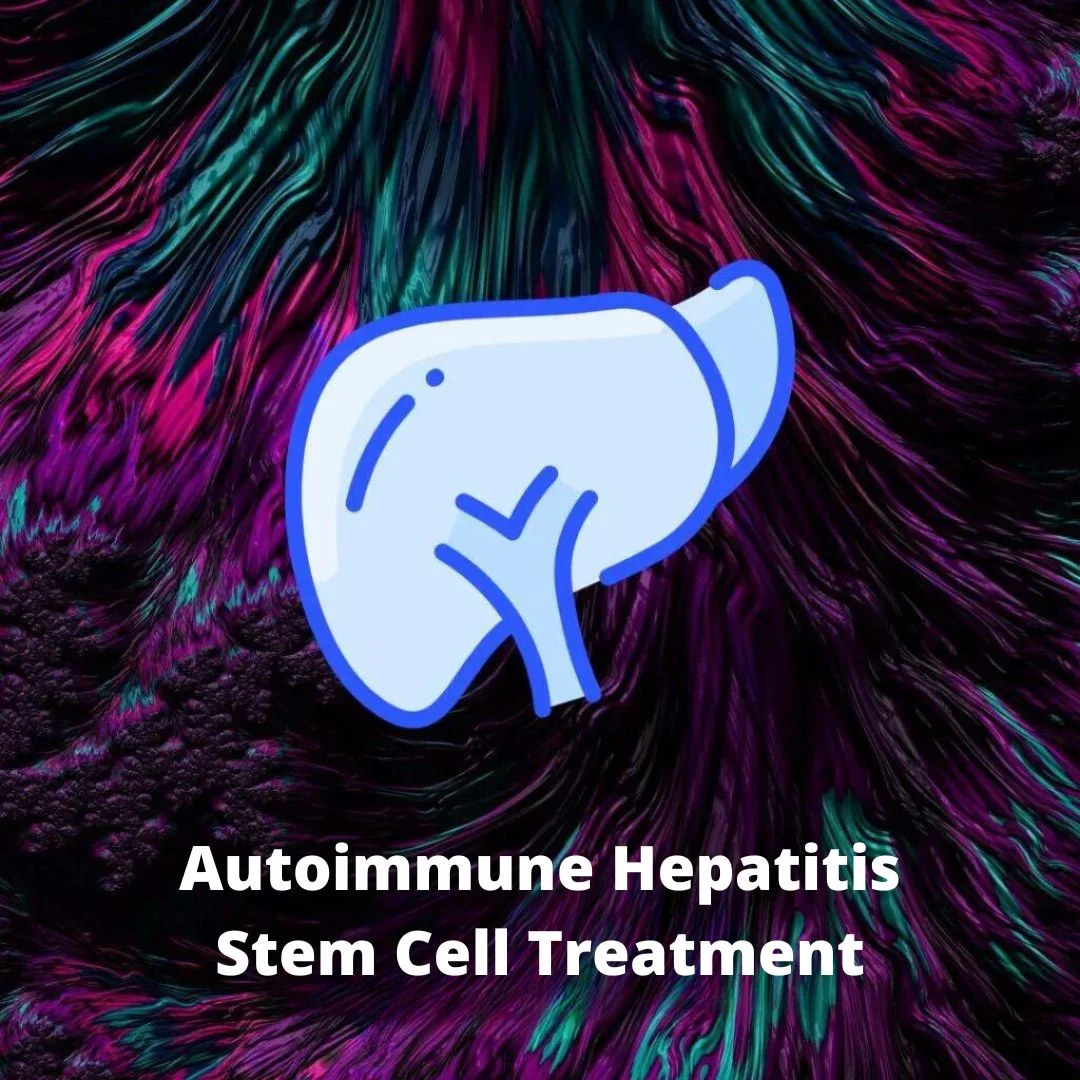Autoimmune Hepatitis Stem Cell Treatment at Dream Body Clinic
The Stem Cell Treatment for Autoimmune Hepatitis at Dream Body Clinic offers promising therapeutic possibilities for a range of liver conditions, including:
- Autoimmune Hepatitis
- Non-alcoholic fatty liver disease (NAFLD)
- Alcoholic liver disease (ALD)
- Liver fibrosis
- Cirrhosis
- Hepatitis C or B virus-induced liver damage
- Primary biliary cirrhosis
- Primary sclerosing cholangitis
The Regenerative Potential of Mesenchymal Stem Cells in Healing Autoimmune Hepatitis
Mesenchymal stem cells possess remarkable regenerative capabilities, with the capacity to guide differentiation and regeneration of various liver cell types, including hepatocytes, cholangiocytes, and bile duct cells. This ability is crucial for the restoration of liver tissue and the repair of damage caused by autoimmune hepatitis.
Upon administration into the body, mesenchymal stem cells migrate to sites of injury, releasing an array of growth factors, anti-inflammatory cytokines, and extracellular matrix proteins. These factors collectively create an optimal microenvironment that fosters the regeneration and repair of liver cells.
The Therapeutic Potential of Mesenchymal Stem Cells for Autoimmune Hepatitis:
- Stimulation of liver cell regeneration: Mesenchymal stem cells exhibit the potential to differentiate into various liver cell types such as hepatocytes, cholangiocytes, and bile duct cells. This differentiation capability promotes the recovery and repair of damaged liver tissue, subsequently restoring liver functionality.
- Reduction of inflammation: Mesenchymal stem cells possess immunomodulatory properties that can temper harmful immune responses and diminish inflammation provoked by autoimmune hepatitis.
- Suppression of liver fibrosis: By impeding the activation of liver stellate cells, which are pivotal in the development of fibrosis, mesenchymal stem cells can halt the progression of liver fibrosis and enhance overall liver performance.
- Modulation of immune response: Mesenchymal stem cells contribute to immune cell regulation, thereby mitigating the immune response responsible for attacking the liver. This modulation safeguards the liver from further damage while fostering regeneration and repair.
- Enhancement of liver cell survival: The release of growth factors, cytokines, and extracellular matrix proteins by mesenchymal stem cells supports the survival and renewal of liver cells, creating a microenvironment that bolsters liver cell rejuvenation.
- Augmentation of liver cell transplantation efficacy: Mesenchymal stem cells can be combined with liver cell transplantation to amplify its efficacy and overall outcomes.
- Mitigation of oxidative stress: Mesenchymal stem cells mitigate oxidative stress within the liver, a prevalent feature of autoimmune hepatitis that contributes to cell impairment and inflammation.
- Inhibition of liver stellate cell activation: Liver stellate cells, responsible for fibrosis, can be suppressed by mesenchymal stem cells.
Overall, mesenchymal stem cells offer a potent therapeutic avenue for treating autoimmune hepatitis. Their multifaceted benefits encompass promoting liver regeneration, diminishing inflammation, and thwarting fibrosis.
Impact of Mesenchymal Stem Cells on Hepatocytes in Autoimmune Hepatitis:
Hepatocytes, the primary constituent of liver tissue, play a pivotal role in liver regeneration, metabolism, detoxification, and hormone production. Mesenchymal stem cells can positively influence hepatocytes through various mechanisms:
- Stimulation of hepatocyte proliferation: Mesenchymal stem cells encourage hepatocyte growth, facilitating the generation of new liver cells to replace those affected by autoimmune hepatitis.
- Support of liver function: By secreting growth factors and cytokines, mesenchymal stem cells enhance hepatocyte functionality, promoting efficient metabolic and excretory functions.
- Induction of regeneration: Mesenchymal stem cells spur the regeneration of liver tissue by attracting other stem cells and fostering new blood vessel formation.
- Mitigation of inflammation: Through the release of anti-inflammatory agents, mesenchymal stem cells shield hepatocytes from additional damage linked to autoimmune hepatitis.
- Safeguarding against oxidative stress: Mesenchymal stem cells offer protection to hepatocytes against oxidative stress, a critical element of autoimmune hepatitis-associated damage.
Collectively, mesenchymal stem cells exert a beneficial impact on hepatocytes, fostering regeneration, bolstering function, and safeguarding against detrimental factors tied to autoimmune hepatitis.
Influence of Mesenchymal Stem Cells on Cholangiocytes in Autoimmune Hepatitis:
Cholangiocytes, specialized epithelial cells that line the bile ducts, are pivotal in bile production and flow regulation. They have critical roles, including:
- Bicarbonate secretion: Cholangiocytes neutralize acidic bile to prevent damage to pancreatic ducts and intestines.
- Bile production and modification: Cholangiocytes create bile components and adjust its composition for optimal digestion and fat absorption.
- Bile flow regulation: Cholangiocytes respond to hormonal and neural cues to maintain proper bile transport.
- Bile duct repair: Cholangiocytes can regenerate and restore bile ducts following damage.
MSCs impact cholangiocytes positively, promoting their viability, proliferation, and differentiation. Research indicates that MSCs secrete factors like hepatocyte growth factor (HGF), insulin-like growth factor (IGF-1), and vascular endothelial growth factor (VEGF), which stimulate cholangiocyte proliferation, protect against harm, and encourage functional differentiation.
Moreover, MSCs can regulate liver immune responses, contributing to the management of cholangiopathy and related disorders. By inhibiting harmful immune reactions, MSCs prevent inflammatory and immune-driven damage affecting cholangiocytes.
While further exploration is warranted, evidence supports the notion that MSCs can offer diverse advantages in terms of cholangiocyte growth, function, differentiation, and anti-inflammatory protection in the context of autoimmune hepatitis.
Mechanisms Underlying MSC-Mediated Inhibition of Liver Fibrosis in Autoimmune Hepatitis:
MSCs possess multiple avenues for inhibiting liver fibrosis in autoimmune hepatitis, encompassing immune modulation, inflammation reduction, and extracellular matrix remodeling. These collective mechanisms converge to suppress hepatic stellate cell activation, the primary drivers of fibrosis in the liver.
Ways in which MSCs mitigate liver fibrosis include:
- Immune response modulation: MSCs influence immune cells like T-cells, B-cells, and natural killer (NK) cells engaged in the immune reaction to fibrosis. By adjusting these immune cells’ function, MSCs regulate the immune response and safeguard the liver from further damage.
- Inflammation reduction: MSCs’ anti-inflammatory traits decrease liver inflammation, a central player in fibrosis development. Alleviating inflammation helps thwart the advancement of fibrosis.
- Matrix remodeling induction: MSCs induce the reconfiguration of extracellular matrix proteins, promoting the degradation of fibrotic tissue and the creation of fresh, healthy tissue.
- Growth factor secretion: MSCs secrete diverse growth factors, including hepatocyte growth factor (HGF), transforming growth factor-beta (TGF-β), and insulin-like growth factor-1 (IGF-1). These factors foster liver cell regeneration and restrain fibrosis progression.
MSCs’ ability to counteract liver fibrosis aids in averting additional liver damage while fostering the renewal of healthy liver tissue. Overall, MSCs demonstrate promise as a therapeutic avenue for liver fibrosis and related hepatic diseases in the context of autoimmune hepatitis.
MSC-Mediated Resolution of Fatty Liver Disease or Cirrhosis in Autoimmune Hepatitis:
MSCs hold potential in addressing fatty liver disease and cirrhosis by promoting liver cell regeneration and reducing fat accumulation. This therapeutic approach’s precise mechanisms involve:
- Cell differentiation: MSCs guide the differentiation of Hepatobiliary progenitor cells (HPCs), Oval cells, or Liver Stem Cells into hepatocytes and cholangiocytes. This differentiation contributes to increased liver cell count, aiding in fat removal and cirrhosis reversal.
- Anti-inflammatory actions: MSCs release anti-inflammatory cytokines that manage liver inflammation, preventing further fat accumulation.
- Immunomodulation effects: MSCs modulate the immune response, curbing the release of pro-inflammatory factors that exacerbate liver damage and inflammation—a key contributor to fatty liver disease.
- Antioxidant benefits: MSCs secrete antioxidants that counteract oxidative stress, a common factor in fatty liver disease. Mitigating oxidative stress supports cellular rejuvenation and fat elimination.
While the precise mechanisms require further elucidation, evidence suggests that MSCs offer a promising avenue for treating fatty liver disease and cirrhosis within the context of autoimmune hepatitis.
Liver Failure Stem Cell Studies
- Stem cells: a potential treatment option for liver diseases
- Therapeutic Potential of Umbilical Cord Stem Cells for Liver Regeneration
- Mesenchymal stem cell therapy for liver fibrosis
- The therapeutic promise of mesenchymal stem cells for liver restoration
- Improvement of liver function in liver cirrhosis patients after autologous mesenchymal stem cell injection: a phase I–II clinical trial
- Liver-specific gene expression in mesenchymal stem cells is induced by liver cells
- Antioxidant-upregulated mesenchymal stem cells reduce inflammation and improve fatty liver disease in diet-induced obesity
- Bone marrow derived-mesenchymal stem cell improves diabetes-associated fatty liver via mitochondria transformation in mice
- Mechanisms of Action of Mesenchymal Stem Cells in Metabolic-Associated Fatty Liver Disease
- Human umbilical cord-derived mesenchymal stem cell therapy ameliorates nonalcoholic fatty liver disease in obese type 2 diabetic mice
Stem Cell Treatment for Liver Disease: A Safety Overview
The Stem Cell Treatment for Autoimmune Hepatitis holds an encouraging safety profile. Noteworthy points include:
- Low occurrence of side effects: A minor fever and headache lasting a few hours to a day post-treatment affects approximately 1 in 100 individuals. Such symptoms are easily resolved with 500mg of Tylenol.
- Infection risk mitigation: Stringent sterility protocols minimize infection risks tied to injection-based treatments.
- Cancer patients’ precautions: Individuals with a history of cancer within the past 5 years are not treated as a safety measure, despite a lack of definitive evidence linking stem cells to exacerbating cancer. This precaution underscores patient well-being and awaits further research clarity.
- Stem Cell Certification: Dream Body Clinic boasts over 8 years of experience cultivating mesenchymal stem cells, ensuring safety and efficacy. Verification of Stem Cell Certification can be accessed by clicking the provided link. See Stem Cell Certification by Clicking Here
Longevity of Stem Cell Treatment Results for Liver Disease
Stem cell treatment results for liver disease can exhibit sustained efficacy, potentially lasting for years or even indefinitely. The genuine cellular regeneration enabled by stem cells yields enduring improvements to liver condition. Stem cells reprogram the immune system to function optimally, providing enduring benefits. The immune system’s reprogramming and core damage restoration engender sustainable health.
The intravenous administration of mesenchymal stem cells maintains a presence in the system for 8 months to a year. During this span, the MSCs interact with immune cells, seeking out inflammation to guide cellular rejuvenation. After 8 to 12 months, free-bound MSCs differentiate into bone, fat, or cartilage cells, housing the donor’s HLA markers. The immune system subsequently eliminates them, a straightforward process without adverse reactions. Certain IV-free MSCs attach to capillaries, becoming pericytes that can remain beneficial in the system indefinitely.
The Stem Cell Treatment for Liver Disease at Dream Body Clinic facilitates bodily healing comparable to childhood regeneration.
Accessing the Liver Disease Stem Cell Treatment
To encapsulate, the Stem Cell Treatment for Autoimmune Hepatitis offers promise for those grappling with this condition. Dream Body Clinic customizes treatment plans utilizing stem cells to revitalize and rejuvenate damaged liver tissues, fostering enhanced liver function. Although this treatment’s widespread availability is ongoing, ongoing research underscores its potential as an alternative to conventional Autoimmune Hepatitis management approaches. Those keen on learning more can explore a free consultation by calling (833) 445-9089. To embark on the Liver Disease Stem Cell Treatment journey, visit the provided image for booking details.

